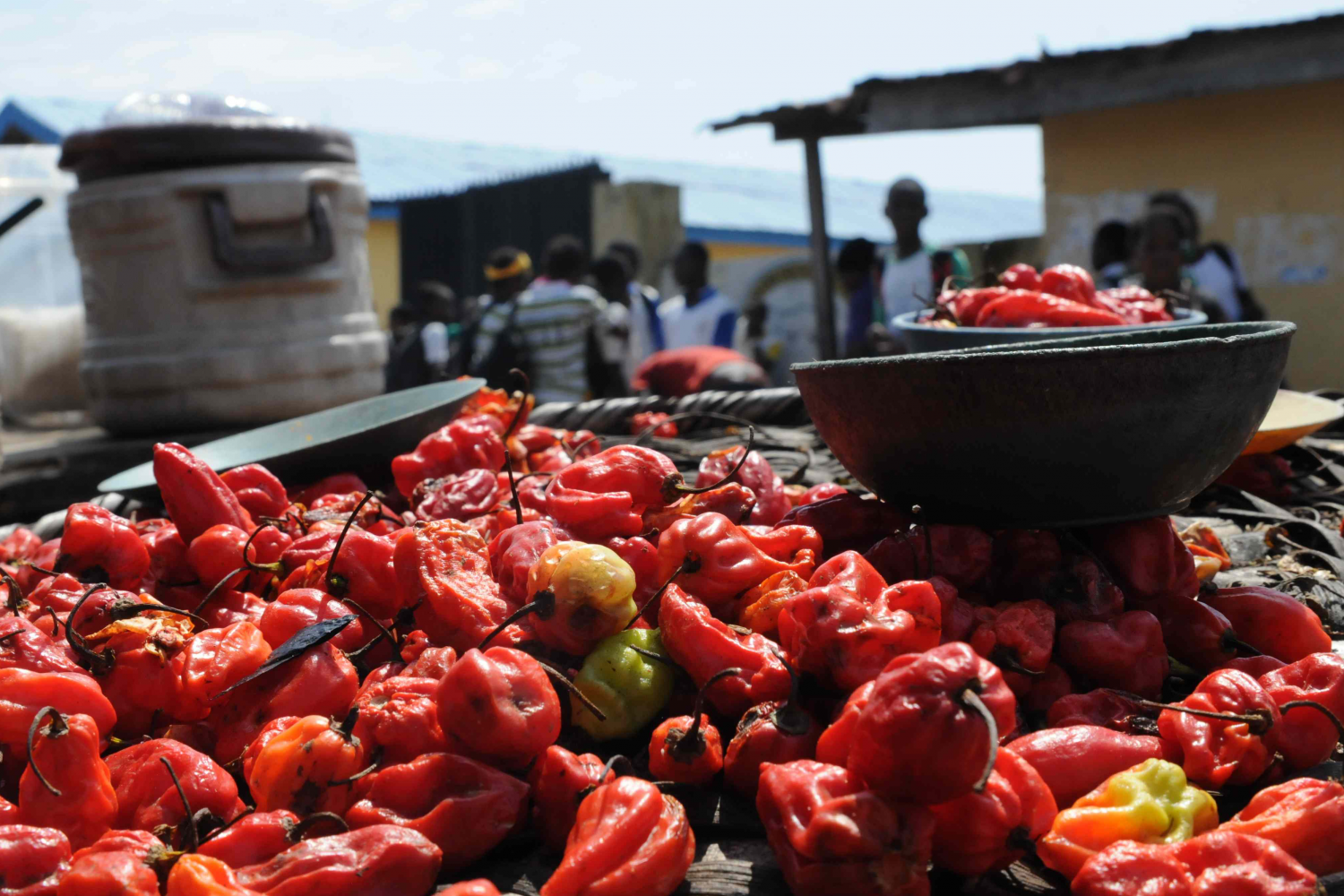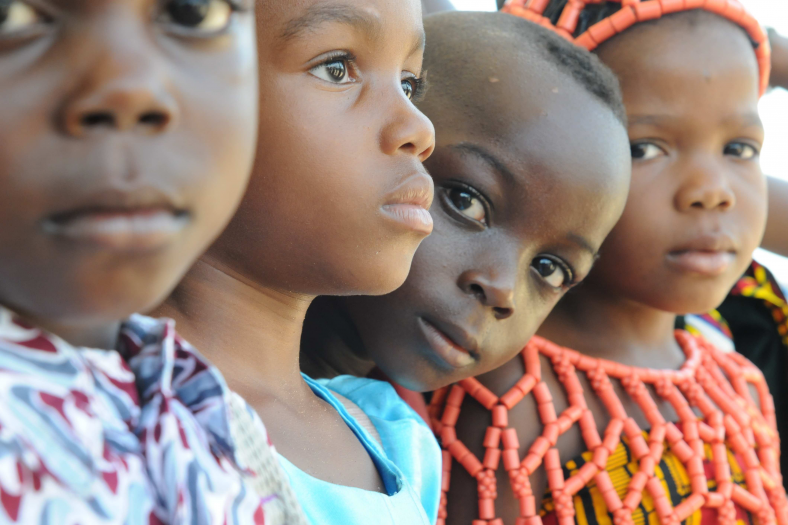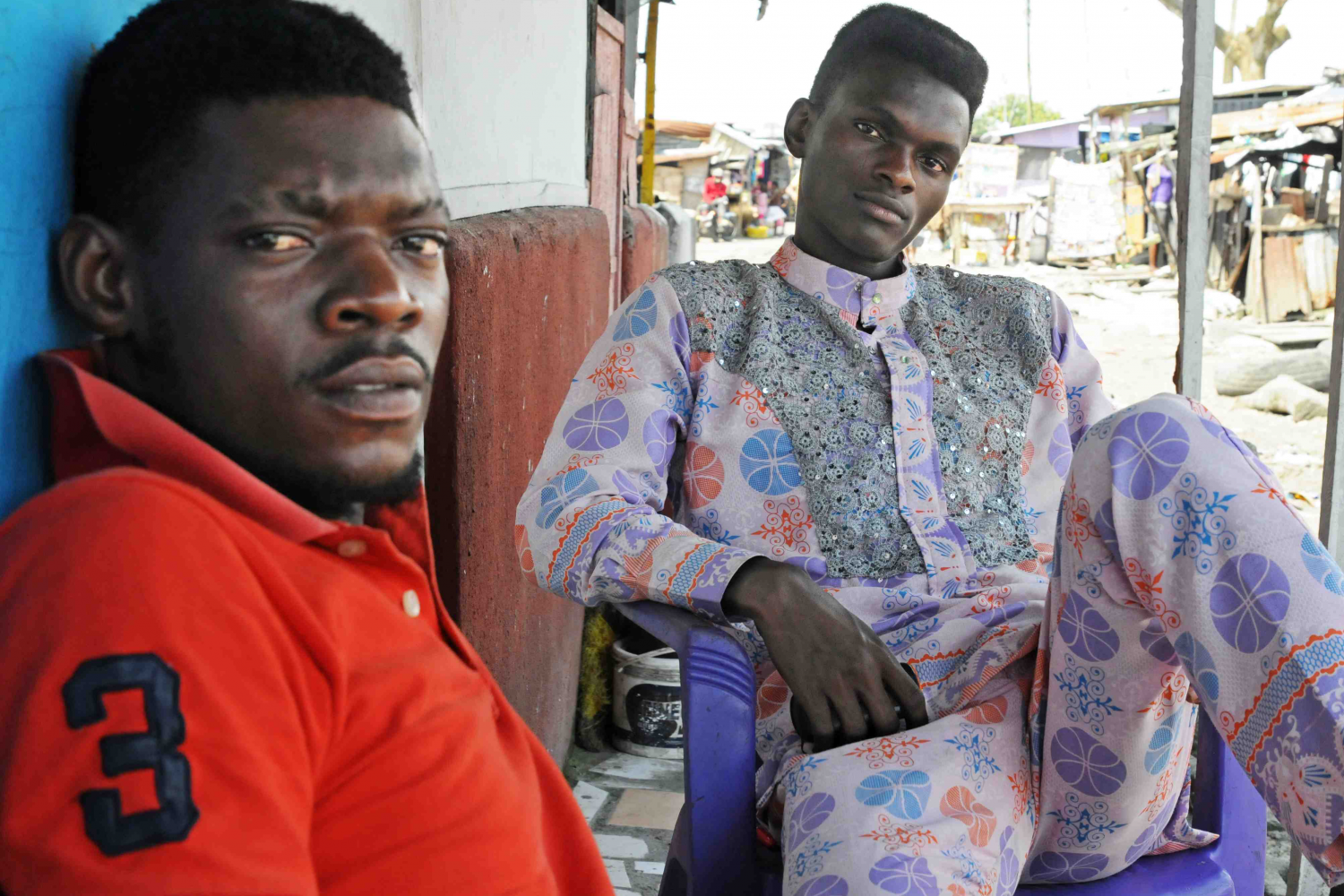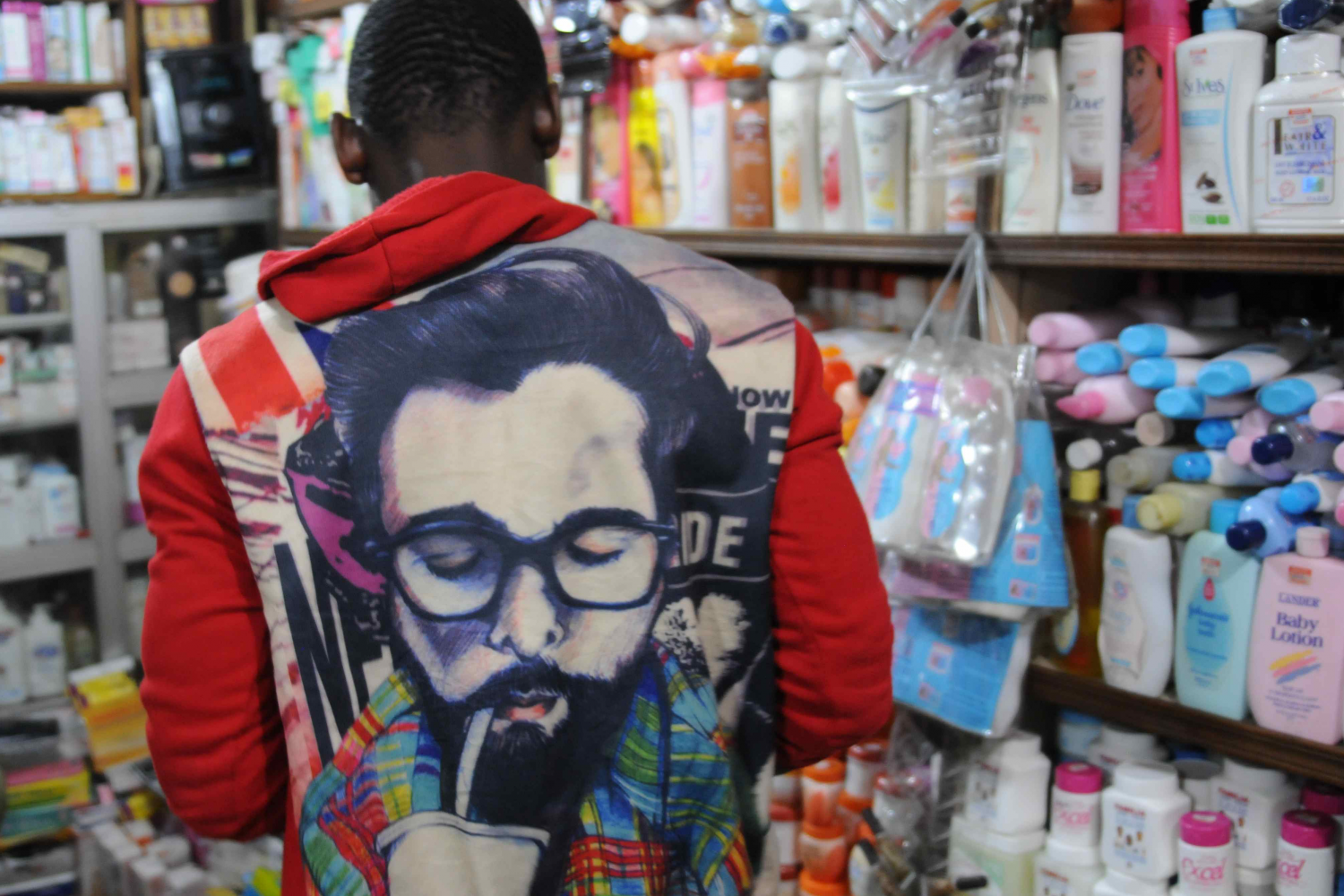Stefaan Anrys was jaren Afrika-journalist voor MO* en is nu docent aan de Arteveldehogeschool in Gent.
'Nigeria has been falling apart for a while' (Jeremy Weate)
‘Nigeria has been falling apart for a while’, says Jeremy Weate. Weate is a co-founder of Cassava Republic Press, one of Africa’s leading new publishers.
Jeremy Weate works as a consultant, having advised governments in fourteen countries on natural resource governance in the public sector.
He also worked with some of the world’s leading blue-chip companies in the private sector.
MO* Magazine asked Weate 7 questions on Nigeria. Read and hear (click on the play symbol) his responses below.
1Why does Nigeria not fall apart?
‘In a way Nigeria has been falling apart for a while. Boko Haram is a sign of Nigeria falling apart. You have three states in the North-East with 20+ towns under Boko Haram control. And in the last 4 years you’ve started to have suicide bombers. It was something that would be simply unimaginable before that.
It was very hard for Nigerians to accept that there could be people, who were Nigerian, who were so passionate about their beliefs they would blow themselves up. So in a way we have already gone beyond acceptable limits of what Nigeria is and what it’s about.
I was in London recently and I saw this guy with a big Biafra-badge. In the South-East of Nigeria you still have a bunch of people who think that the Igbo-part of Nigeria should have broken away. The thing that holds Nigeria together is the fact that…’

Young boy selling fuel from illegal oil bunkering in Port Harcourt (Nigeria)
© Stefaan Anrys
2Is it all about oil?
‘There are 36 states. Let’s imagine Nigeria broke up into 36 States then there would be less to capture. At present, there is an incentive to keep Nigeria together. Because there’s all of that oil money in one large pot. If it was broken into little pots, then it is less.
Think about it. Nigeria became an independent country in 1960, but from a few years previously thousands of barrels of oil were being produced. One of the things that people don’t realize is that Biafra - the Nigerian civil war that started in the late sixties until 1970 - was really a resource conflict and a competition for oil rents.
It wasn’t really about Igbo versus Yoruba or other ethnic groups. Of course, it was on one level, but it was really at base one region trying to capture the whole of…’

‘If you can capture the oil, you are going to be phenomenally rich’ (Jeremy Weate)
© Stefaan Anrys
3 How would Nigeria look like without oil?
‘Pre-oil, the North, which was run as kind of a separate region, had a strong agricultural economy with groundnuts production and export. The South-West was exporting cocoa and the South-East producing palm oil.
What was quite nice about Nigeria before oil was that there was a regionally balanced economy. One agricultural product here, one there. There was a kind of regional economic equilibrium. Nigeria could go back to something like that at the end of oil. Perhaps it could be a different kind of Nigeria. It could evolve into another kind of national identity.
The paradox of oil is that at the one hand oil rents stimulate a centripetal force to capture the treasury, but on the other hand the competition for oil creates these kind of fictional distinctions between ethnic groups that didn’t exist previously.
The differences between Igbo, Yoruba, Hausa, Tiv and Ibibio, Idoma and everywhere else have been very much…’

Nigeria is still known for its peppers
© Stefaan Anrys
4 Why don’t schools teach history in Nigeria?
‘After Biafra, after the civil war, it was felt that these things cannot be discussed. They are too sensitive. Let’s not worry about the past. That was the kind of impetus. Let’s create peace in the land by not going over this tragedy. But it just carried on and on.
You can’t believe it, but 42 years after the end of Biafra it’s still not taught in schools. Many Nigerians don’t know much about Biafra at all. Igbo-people who have a family history, whose relatives were killed, they of course know all about Biafra from a personal perspective.
There was a map on social media some days ago on the median ages of different African countries. Nigeria, from memory, had a median age of 18.2 or 18.5 years old. So if you are 18 or 19 and you had a poor education by and large, and even if you had relatively good education in Nigeria, you would not know anything about Nigerian history. So your worldview is formed precisely by this crucible petroleum-economy post-Biafra. So you have no way of going back. It is so confused.
And unfortunately, if you try to understand the past through Nollywood, which is very popular here, you’ll find the representation of culture is so bastardised and distorted and so…’

Kids dress up in their traditionial attire during Cultural Day at a school in Lagos
© Stefaan Anrys
5 Isn’t the North different from South-Nigeria?
‘There’s a huge historical distinction between northerners and people from other parts of Nigeria. The North tends to have more historical continuities than elsewhere. Obviously the North itself is internally complex but for the most part, if you are a kid growing up in the North, you may find yourself being educated at an Islamic school.
There is a lot more sense of historical continuity in these settings. You have the emir for the town. There will be a group of families who compete for one of their sons to become an emir. These families often have a written lineage going back two centuries at least, to the time Usman dan Fodio launched a jihadi invasion in…’

‘Nigerian confidence is in reality quite brittle’ (Jeremy Weate)
© Stefaan Anrys
6 Nigerians aren’t all bruisers and breakers?
‘The traditional kind of Western representation of Nigerians is of a super-confident swagger – noisy and brash. In reality, this is often a mask for shame.
In a way there is far more shame in a Nigerian context than in an east African context. There’s also an inability to articulate that shame and an inability for that to enter the level of discourse and for people to talk about it.
So the noisiness you associate with Nigerians is very much covering over something that can’t really be talked about. And the idea of talking about it to a white person is a complete no-no! Young Nigerians will not be able to mobilize and come together and cohere in forms of resistance unless they are…’
7 In 2012 one million people took to the streets. Will Occupy Nigeria come back?
‘The government simply can’t afford to keep itself going. So it’s going to have to remove things like fuel subsidies. So the January 2012 moment is going to return. The trigger for riots and revolutions is often simple things, such as when the price of bread goes up.
Ordinary people can’t afford to feed themselves and reach a breaking point. If you remove the fuel subsidies then the price of petrol goes up, and so too does the price of foodstuffs rise. In this situation, you quickly hit the point of no return where you have instability on the streets.
That is situation is going to return to Nigeria. It is unavoidable. The Nigerian economy is simply unsustainable and…’

Niger Delta: graduates working in shops because there are not enough skilled jobs
© Stefaan Anrys
In het winternummer van MO*magazine kan je een grote reportage over Nigeria lezen. Je kan dit winternummer gratis krijgen als je een abonnement bestelt voor slechts 20 euro. Stuur vandaag nog een e-mail naar promotie@mo.be of bel 02/536 19 77.
Maak MO* mee mogelijk.
Word proMO* net als 2790 andere lezers en maak MO* mee mogelijk. Zo blijven al onze verhalen gratis online beschikbaar voor iédereen.
Meer verhalen
-
Report
-
Report
-
Report
-
Interview
-
Analysis
-
Report










 Oxfam België
Oxfam België Handicap International
Handicap International